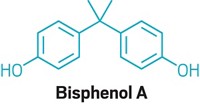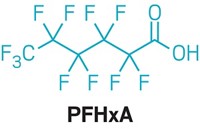Advertisement
Grab your lab coat. Let's get started
Welcome!
Welcome!
Create an account below to get 6 C&EN articles per month, receive newsletters and more - all free.
It seems this is your first time logging in online. Please enter the following information to continue.
As an ACS member you automatically get access to this site. All we need is few more details to create your reading experience.
Not you? Sign in with a different account.
Not you? Sign in with a different account.
ERROR 1
ERROR 1
ERROR 2
ERROR 2
ERROR 2
ERROR 2
ERROR 2
Password and Confirm password must match.
If you have an ACS member number, please enter it here so we can link this account to your membership. (optional)
ERROR 2
ACS values your privacy. By submitting your information, you are gaining access to C&EN and subscribing to our weekly newsletter. We use the information you provide to make your reading experience better, and we will never sell your data to third party members.
Environment
Denmark to sue over exclusion of deca-BDE from EU ban
January 9, 2006
| A version of this story appeared in
Volume 84, Issue 2
The Danish government announced on Jan. 3 that it will file a legal suit against the European Commission for allowing the continued use of the flame retardant decabromodiphenyl ether (deca-BDE) in plastics used to make electronic devices. The EC, the European Union's executive body, on Oct. 15, 2005, exempted the compound from a directive banning a number of other hazardous substances in electrical and electronic equipment, including lead, mercury, and several polybrominated diphenyl ethers. That directive will take effect July 1. The Danish government and some members of the European Parliament object to the EC's move. Connie Hedegaard, Danish minister of the environment, says, "It is unacceptable to exempt deca-BDE from the general ban when there are alternatives to it." Industry groups such as the Bromine Science & Environmental Forum, which is composed of manufacturers of brominated flame retardants, and the American Plastics Council support the commission's decision to allow the use of deca-BDE to continue in Europe.





Join the conversation
Contact the reporter
Submit a Letter to the Editor for publication
Engage with us on Twitter